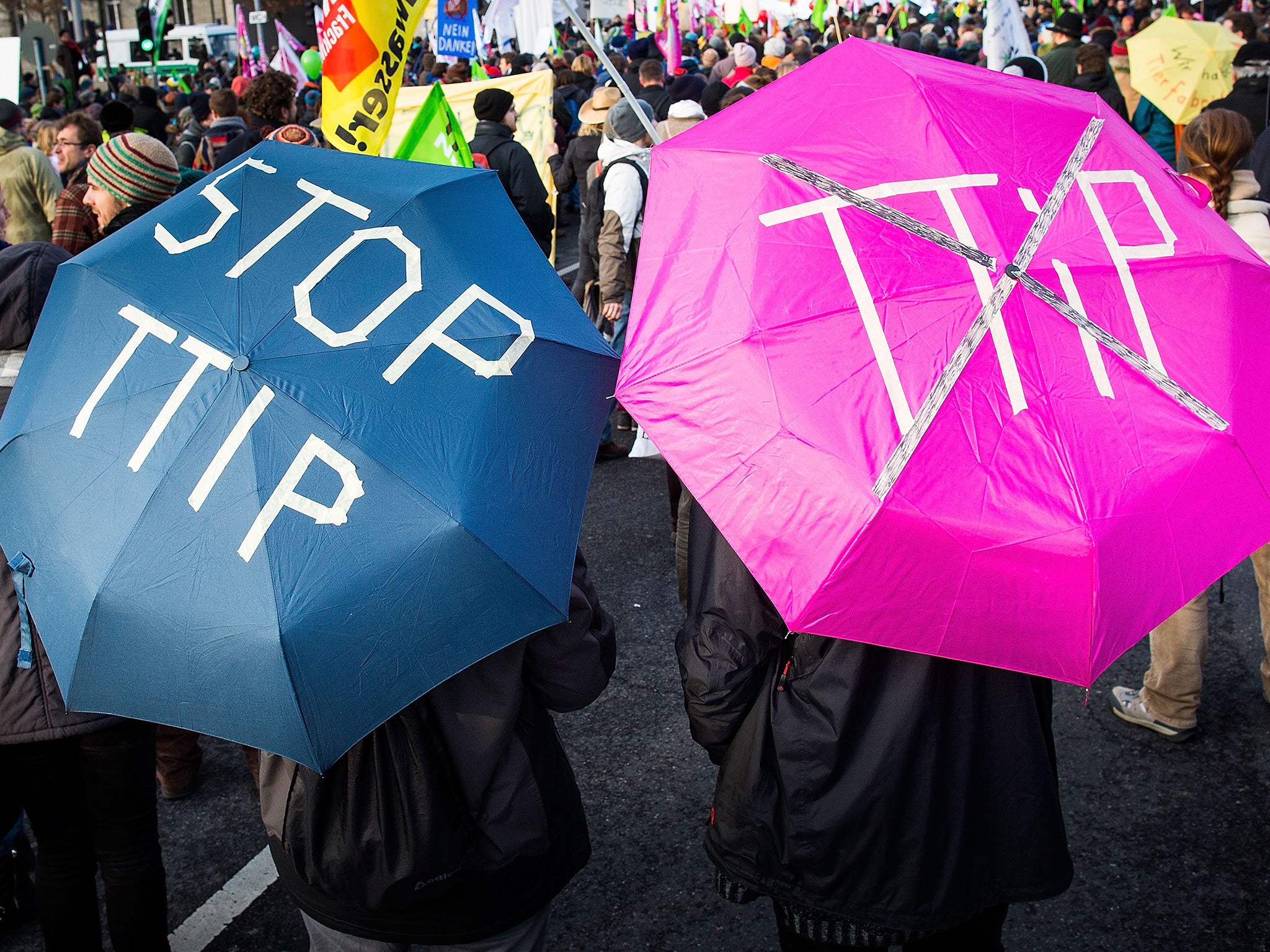Want to know how to really tackle climate change? Pull the plug on the World Trade Organisation
The WTO brought us the 2008 crash and TTIP - we must bring it to a halt in order to tackle climate change

With the ink still drying on the Paris climate deal, the governments of the world are now gathering in the Kenyan capital, Nairobi, for a crunch summit of the World Trade Organisation (WTO).
The question on the table is a simple one. Is it time to abandon the failed Doha Round of world trade talks? Or should the world continue to pour resources into an initiative that has delivered nothing over the past 14 years?
I was one of the few civil society delegates who travelled to Doha in 2001 to witness the launch of the negotiations. Like many other commentators, I am convinced that this week’s WTO summit should be its last.
The WTO has become an embarrassment, with nothing to show for the millions of person hours that have gone into the Doha Round. Despite claims that the talks would deliver a ‘development’ agenda, they quickly degenerated into yet another squabble over the business interests of corporate elites.
But there is a deeper question behind the issue of whether or not to save the Doha Round. Does the WTO itself have any role to play in the new world of the 21st century, or is it a relic of a bygone era that should now be wound up for good?
The WTO was born in 1995 out of the Uruguay Round of world trade talks. Its role was to enforce the rules that govern global capitalism, and to promote the limitless expansion of global trade and capital investment across the world.
This was the high-water point of globalisation, when the world was set to become one global village and nation states would forever be confined to the dustbin of history. The WTO’s first director-general, Renato Ruggiero, was not exaggerating when he said that he and his colleagues were “writing the constitution of a single global economy”.
Yet this grandiose plan soon fell victim to its own ambition. The WTO’s first summit after the launch of the Doha Round collapsed in acrimonious failure. The next was marked by pitched battles in the streets of Hong Kong as riot police fought Asian farmers desperately trying to save their livelihoods from the WTO’s free trade agenda.
The WTO slipped into a coma. Government ministers must decide this week whether to turn off its life support.
The answer is surely yes. It was the WTO’s poisonous cocktail of trade expansion and market deregulation that led to the economic crisis of 2008. Years of export-led growth resulted in a crisis of overproduction that could only be sustained with mountains of debt. The parallel deregulation of financial services meant that this debt soon turned out to be toxic, and the world’s banking system went into freefall.
Nor is the WTO fit for purpose on ecological grounds. If last week’s climate talks in Paris taught us anything, it is that we must rethink the model of ever-expanding production and consumption in order to avoid planetary meltdown. Global capitalism may need limitless expansion in order to survive, but the planet is already at the very limits of what it can take. The choice is ours.
Worst of all, it is the WTO’s ideology of unrestricted trade and corporate domination that lies behind all the bilateral trade deals that are proliferating at the moment, including the infamous Transatlantic Trade and Investment Partnership (TTIP). We need a radically different model of regulated trade and controlled investment if we are to have any chance of breaking the cycle of economic and ecological crisis. For the planet to survive, the WTO must die.
John Hilary, Executive Director, War on Want
Join our commenting forum
Join thought-provoking conversations, follow other Independent readers and see their replies
Comments
Bookmark popover
Removed from bookmarks